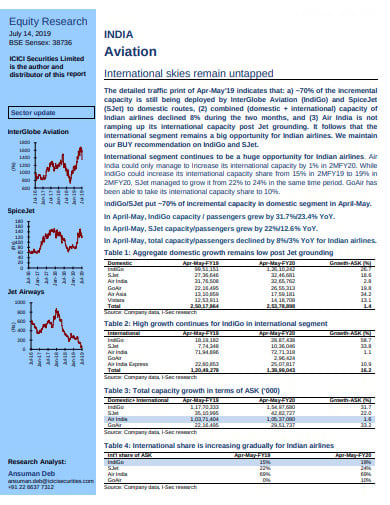Market Analysts: Analyzing Market Movements for Your Benefit
In the rapid world of financial markets, comprehending market movements can feel like attempting to navigate a labyrinth without a map. Equity research analysts play a vital role in this field, providing perspectives and projections that help investors make informed decisions. By assessing company performance, market conditions, and economic indicators, these professionals offer a clearer view of what the future holds, enabling persons and institutions alike to seize upcoming opportunities.
For those looking to achieve an edge in their investment strategies, leveraging the knowledge of equity analysts can be a significant advantage. With their extensive understanding of financial metrics and trends, these experts simplify complex market phenomena, converting complex data into practical insights. Whether you are a experienced investor or a newcomer, collaborating with equity analysis specialists can help you navigate unpredictabilities and identify potential areas for growth, making your investment journey more informed and possibly more rewarding.
Understanding Equity Evaluation
Stock analysis is a key process that involves evaluating the financial health and performance prospects of listed companies. Evaluators use different approaches to assess a company's shares, including fundamental analysis and technical analysis. Fundamentals focuses on financial reports, macro conditions, and market dynamics, while technical evaluation emphasizes price changes and trading activity. By integrating these approaches, stock analysts can offer insights into the prospective behavior of a share.
Stock analysts consider multiple elements when performing their evaluation. They review a company's sales increase, earnings, and cash flow, as well as broad economic signals that could affect the company's results. In addition, evaluators evaluate competitive positioning within the sector, comparing how a company measures up against its competitors. This comprehensive approach allows investors to arrive at knowledgeable choices about buying, holding, or selling shares.
The ultimate goal of equity analysis is to establish the true worth of a company's stock. Evaluators create target prices for shares based on their findings and provide recommendations to investors. By utilizing the knowledge of equity evaluation experts, investors can gain a clearer grasp of market dynamics and capitalize on potential investment opportunities. equity research report can be instrumental in steering through the complexities of the market landscape and improving investment approaches.

Essential Indicators for Market Developments
Comprehending key metrics is crucial for equity analysts in analyzing market dynamics. One of the core metrics is EPS. This number indicates a company's financial performance on a per-share basis, allowing analysts to contrast the earnings of multiple companies within the identical industry. A continuously growing EPS can point to a robust financial position, attracting investors and influencing stock prices in a positive way.
Another, a critical metric is the price/earnings ratio, or price-to-earnings ratio, which provides clarity into how much investors are willing to pay for a dollar of earnings. A high P/E ratio may suggest that the market expects future growth, while a low P/E may indicate an inexpensive stock. Analysts often use this ratio in combination with the company's historical performance and industry averages to make well-considered investment decisions.
Lastly, the return on equity, is an important measure that reflects how efficiently a company is leveraging its equity to produce profits. A strong ROE indicates that the company is capable at delivering returns for shareholders, while a diminished ROE can trigger alarms about its operational efficiency. By evaluating these metrics, equity analysts can deliver meaningful insights into market trends and help investors make educated investment decisions.
The Role of Analysts in Investing
Equity analysts play a vital role in helping investors traverse the challenges of the stock market. Their chief responsibility is to evaluate the financial health of businesses, making informed predictions about prospective performance based on comprehensive research and investigation. By scrutinizing financial statements, market fluctuations, and industry developments, these specialists provide essential insights that can help investors make well-informed decisions.
Moreover, equity analysts often produce detailed reports that outline their findings and offer suggestions on whether to buy, divest, or hold stocks. These reports serve as useful resources for individual investors and corporate clients alike, enabling them to comprehend the underlying factors influencing stock prices. Additionally, analysts frequently interact in dialogues with company management and industry leaders, providing them with a more comprehensive understanding of market dynamics and prospective risks.
Ultimately then, the skills of equity analysts can greatly enhance an investor's ability to leverage on market opportunities. By leveraging their analytical skills and market knowledge, investors can better situate themselves for success. This partnership between analysts and investors fosters a better informed investment landscape, leading to likely better financial outcomes.